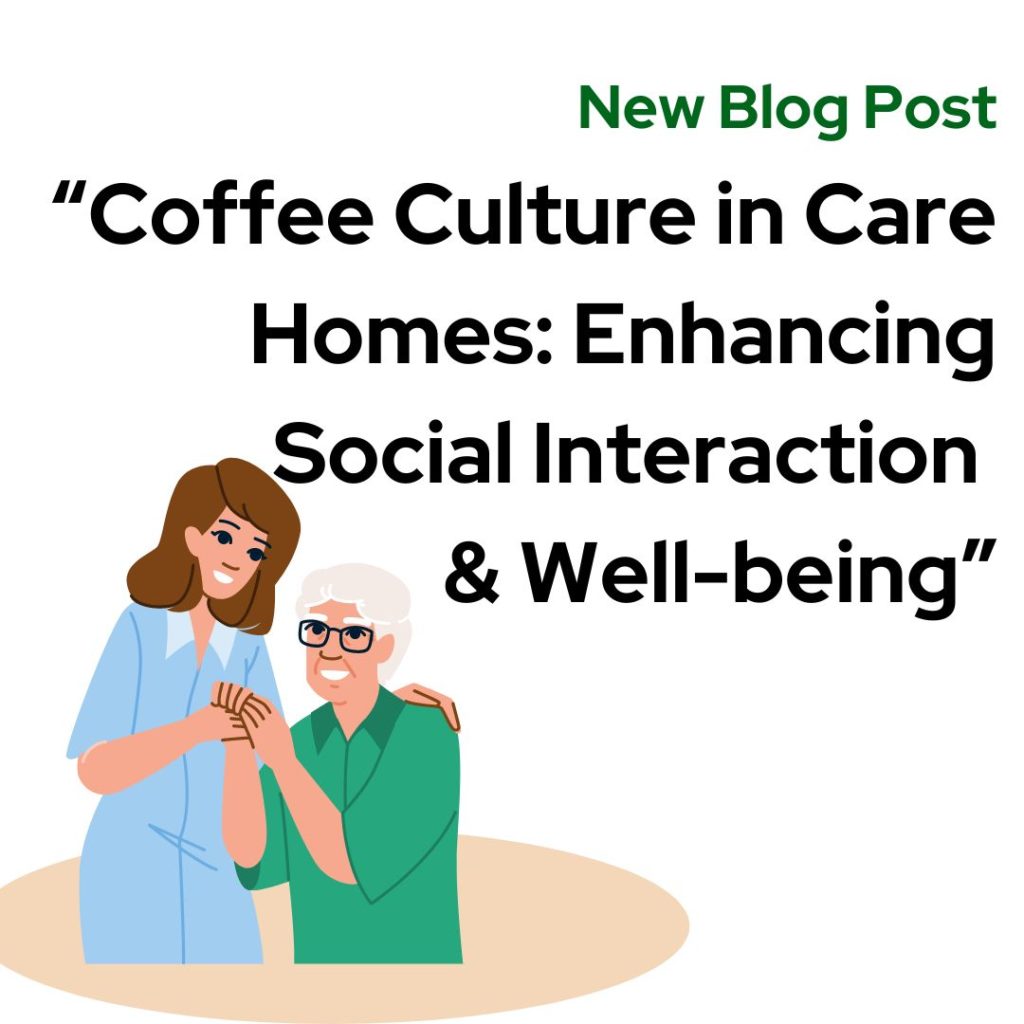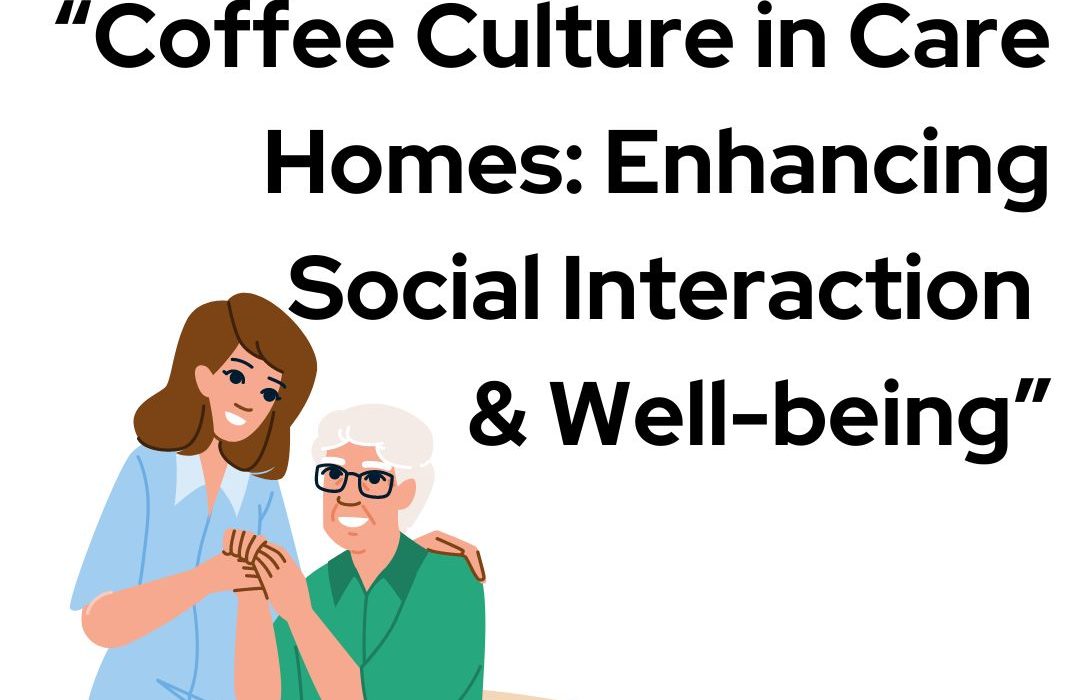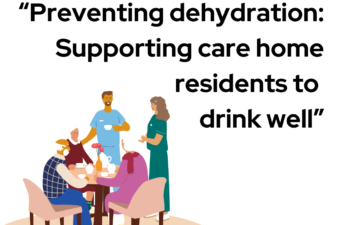
Coffee has long been a staple in daily routines around the world. Its rich aroma and invigorating flavour make it a favourite beverage for many. In care homes, coffee can play a particularly important role, not just as a drink but as a catalyst for social interaction and well-being. This post explores how establishing a coffee culture in care homes can benefit residents, improve socialisation, and enhance their overall quality of life.
The Social Aspect of Coffee
Coffee as a Social Lubricant
Coffee breaks are often social occasions, providing a perfect opportunity for residents to gather and engage in conversation. These interactions can help combat the isolation and loneliness that many elderly individuals experience. Regular coffee meet-ups can foster a sense of community and belonging among residents.
Building Connections
In care homes, structured activities are essential for keeping residents engaged and active. Coffee mornings or afternoons can be organised as part of the weekly schedule, providing a predictable and enjoyable event that residents can look forward to. These gatherings can help new residents integrate into the community and establish connections with their peers.
The Psychological Benefits of Coffee
Cognitive Stimulation
Coffee contains caffeine, a natural stimulant that can enhance alertness and cognitive function. For elderly residents, this can be particularly beneficial. Studies have shown that caffeine can improve memory, reaction times, and overall mental performance. This cognitive boost can be especially valuable in maintaining mental sharpness and reducing the risk of cognitive decline.
Mood Enhancement
The act of drinking coffee can be a comforting ritual. The warmth of the cup, the familiar taste, and the opportunity to relax and chat can all contribute to a positive mood. Additionally, caffeine has been found to have mood-enhancing properties, potentially reducing the risk of depression and anxiety.
Health Benefits of Coffee
Antioxidant Properties
Coffee is rich in antioxidants, which help protect the body from damage caused by free radicals. These antioxidants can contribute to overall health by reducing inflammation and lowering the risk of chronic diseases such as heart disease and cancer.
Physical Health
Moderate coffee consumption has been linked to a range of health benefits, including a reduced risk of type 2 diabetes, Parkinson’s disease, and liver disease. For care home residents, these benefits can contribute to better overall health and longevity.
Creating a Coffee-Friendly Environment
Designated Coffee Areas
To encourage a coffee culture, care homes can create designated coffee areas where residents can gather. These spaces should be comfortable and inviting, with ample seating and a pleasant atmosphere. Decorate the area with cosy furnishings and perhaps even some nostalgic coffee-themed decorations to make it more appealing.
Offering Variety
Providing a variety of coffee options can cater to different tastes and preferences. This can include regular and decaffeinated coffee, as well as speciality coffees such as cappuccinos, lattes, and espressos. Offering different flavours and brew styles can keep things interesting and encourage residents to try new things.
Involving Residents
Involving residents in the coffee-making process can enhance their sense of independence and participation. Allowing them to choose their preferred coffee, assist in the preparation, or even take turns being the “barista” for the day can make the experience more engaging.
Coffee as Part of a Comprehensive Beverage Programme
While coffee is a key component, it’s important to integrate it into a broader beverage programme that includes other drinks to ensure overall hydration and nutrition.
Hydration Awareness
Encourage residents to balance their coffee intake with other hydrating beverages such as water, herbal teas, and juices. Staff should be trained to monitor residents’ fluid intake and ensure they are staying adequately hydrated.
Nutritional Considerations
Coffee can sometimes suppress appetite, so it should be part of a balanced diet. Offering nutritious snacks alongside coffee, such as fruit, nuts, or whole-grain biscuits, can help maintain residents’ nutritional intake.
Engaging Activities Around Coffee
Coffee-Themed Events
Hosting coffee-themed events can add excitement and variety to the care home calendar. Consider organising coffee tastings, where residents can sample different types of coffee from around the world. These events can be educational and fun, providing a sensory experience that engages taste, smell, and sight.
Coffee and Conversation Groups
Forming small coffee and conversation groups can be an excellent way to encourage more intimate interactions among residents. These groups can meet regularly to discuss various topics, share stories, or even engage in light-hearted debates over a cup of coffee.
Coffee-Related Crafts and Activities
Incorporate coffee-related crafts and activities into the schedule. Residents can enjoy making their own coffee-themed art, creating coffee-scented candles, or even participating in a coffee trivia quiz. These activities can stimulate creativity and provide a sense of accomplishment.
Establishing a coffee culture in care homes can have numerous benefits, from enhancing social interactions to providing cognitive and health advantages. By creating a coffee-friendly environment, offering a variety of coffee options, and involving residents in the process, care homes can foster a sense of community and well-being. Integrating coffee into a comprehensive beverage programme ensures that residents stay hydrated and receive the nutritional benefits of other beverages as well. Through thoughtful planning and engagement, coffee can become a cherished part of daily life in care homes, contributing to the happiness and health of residents.




